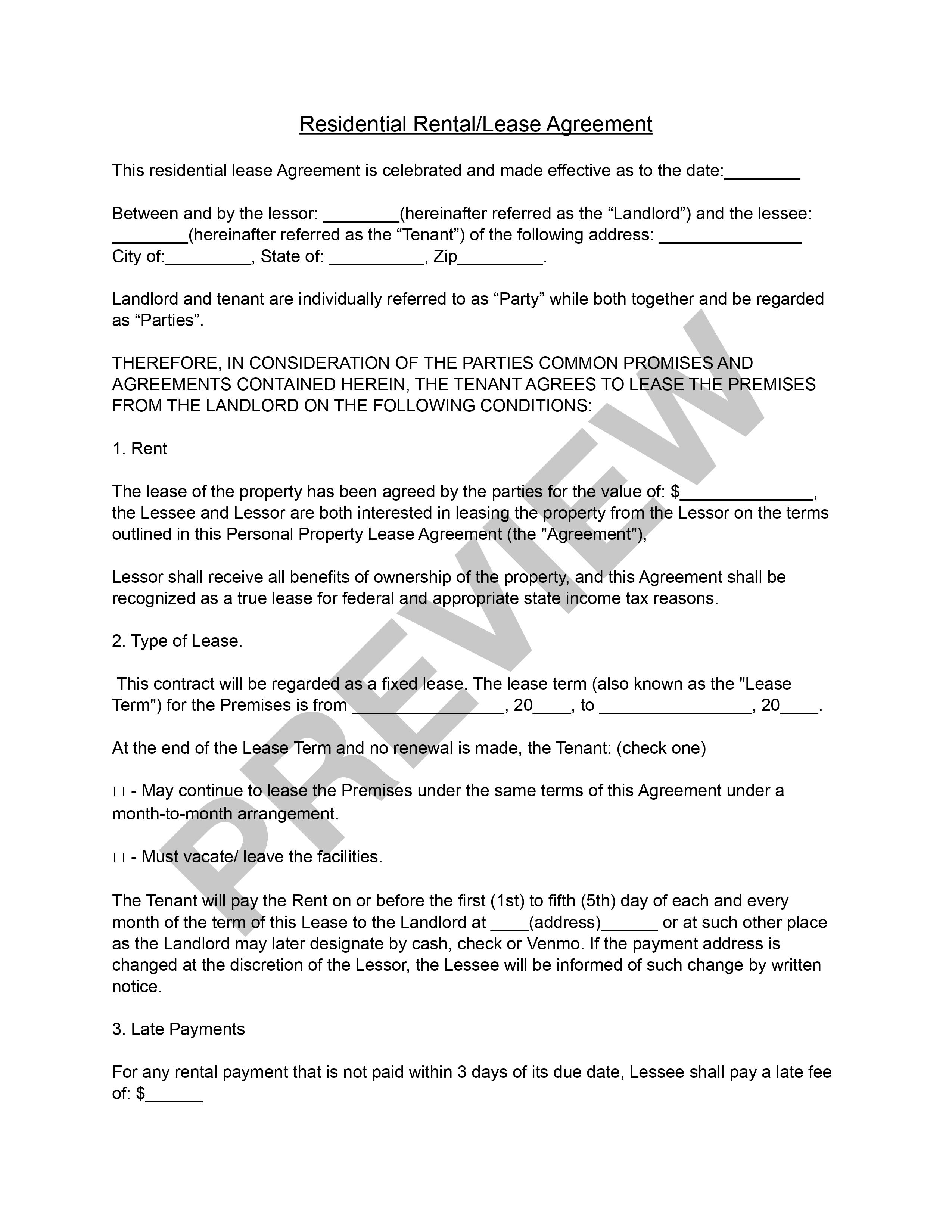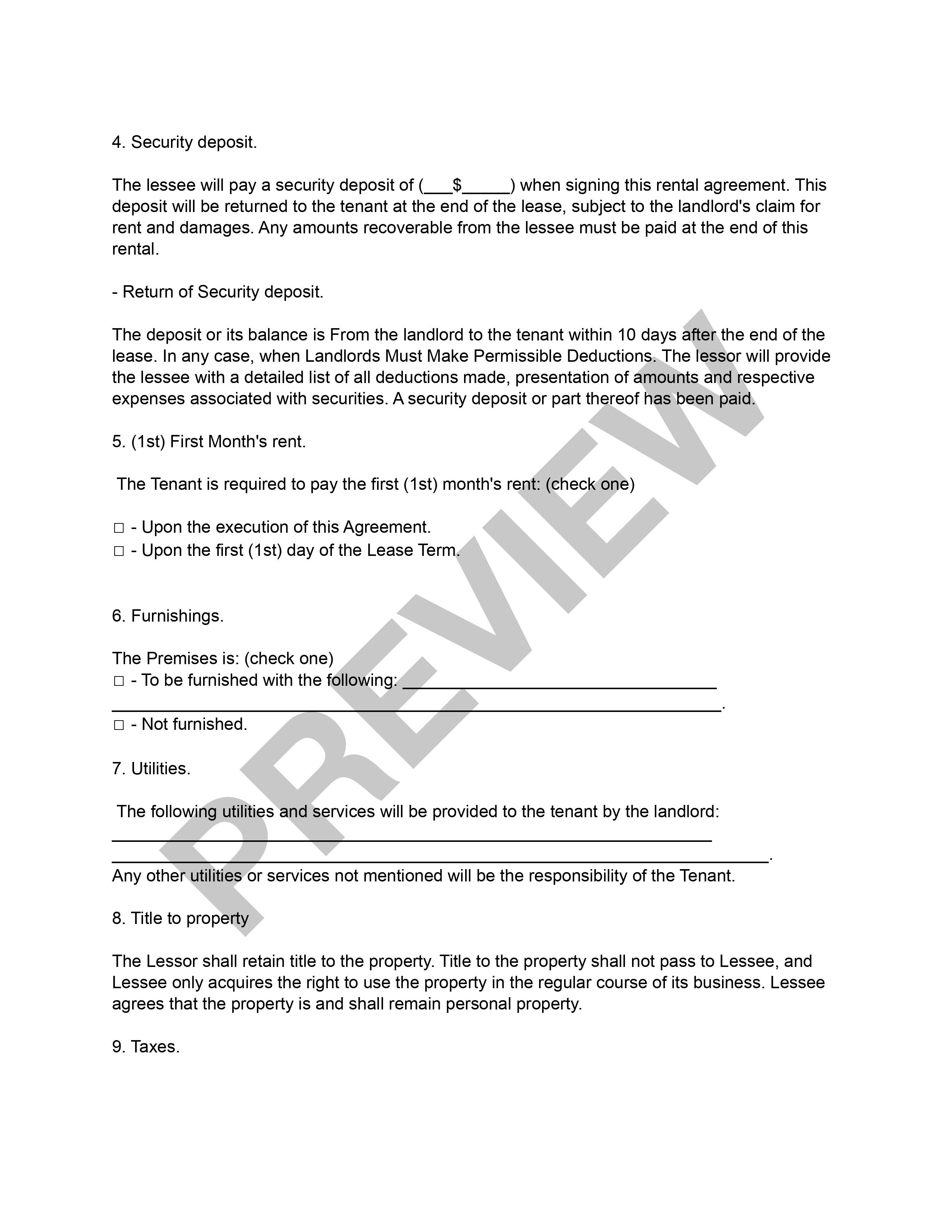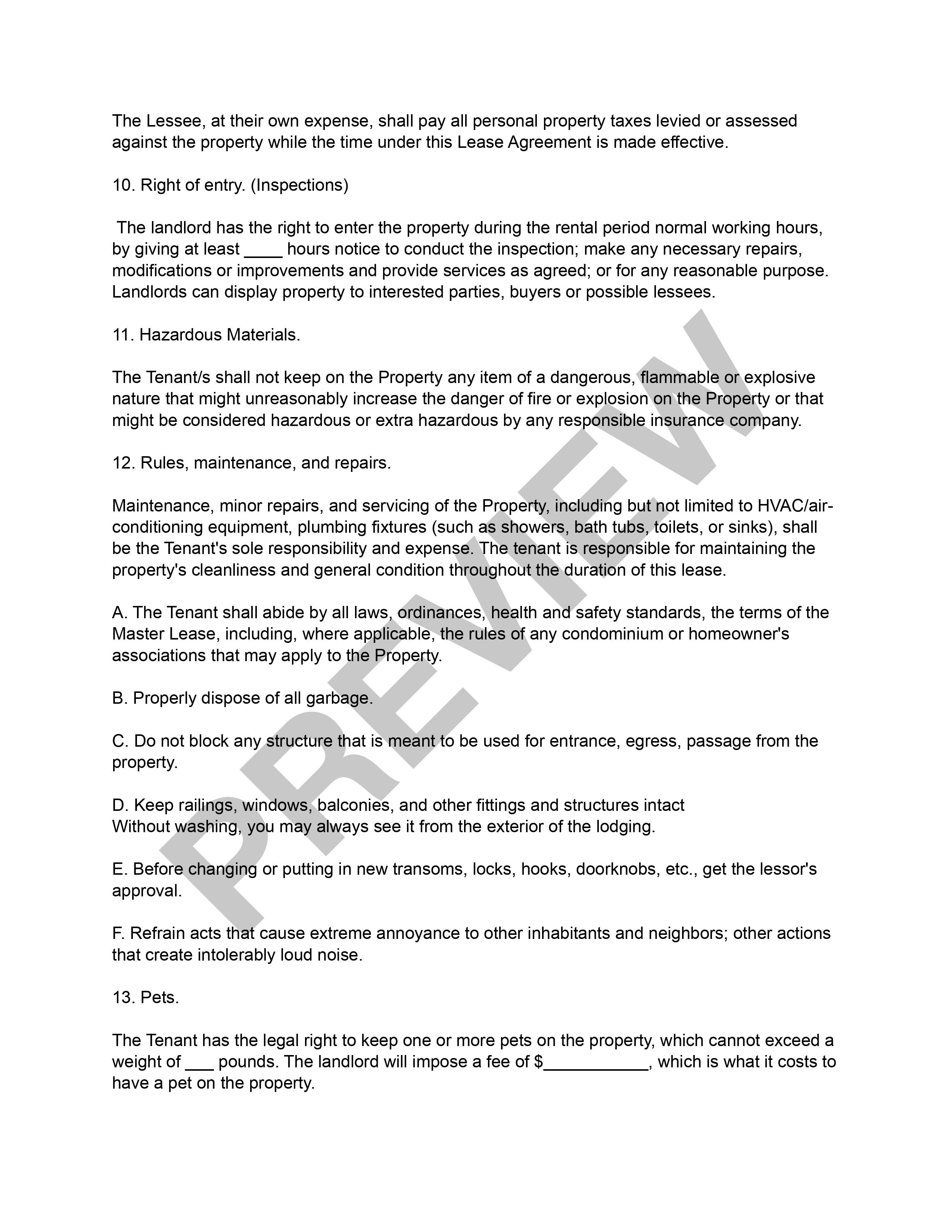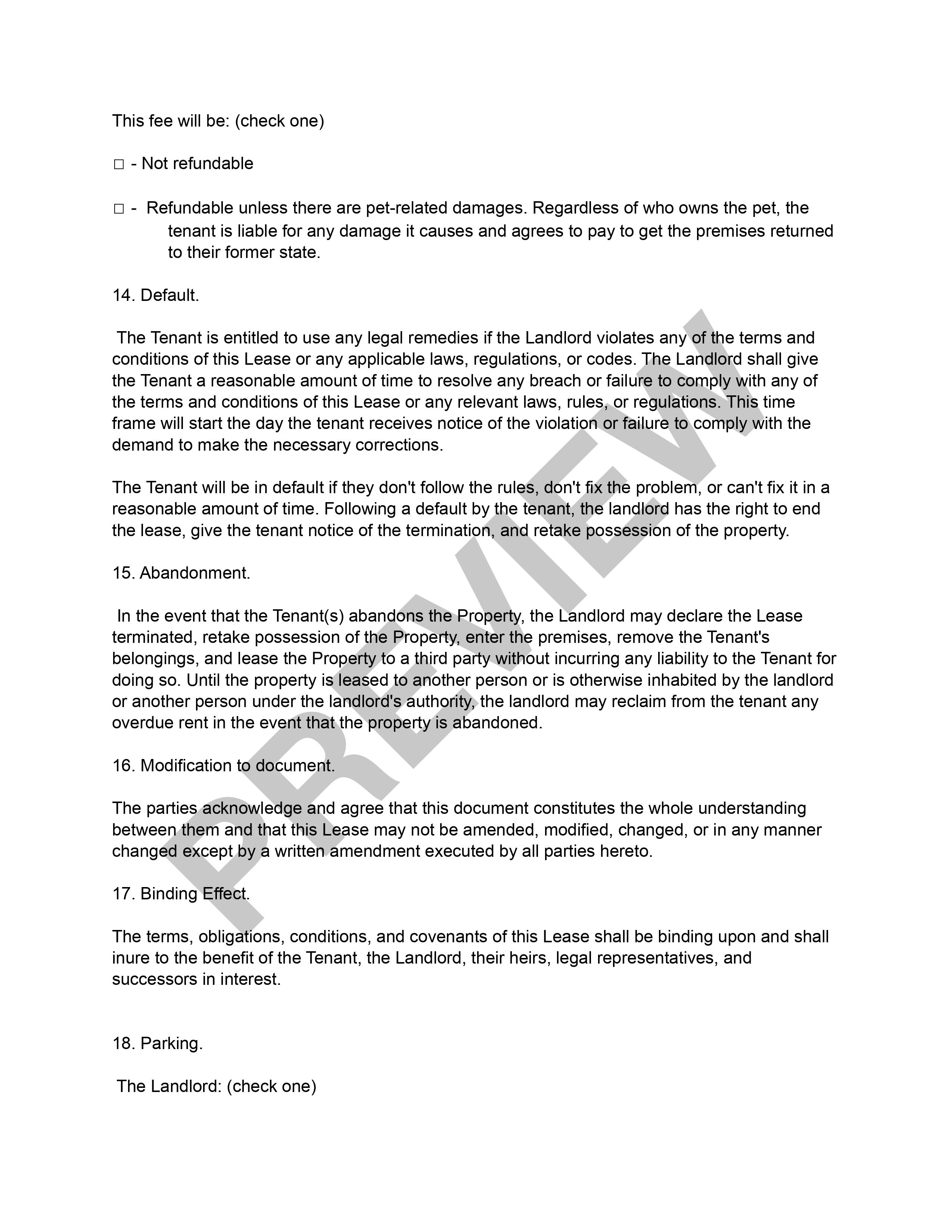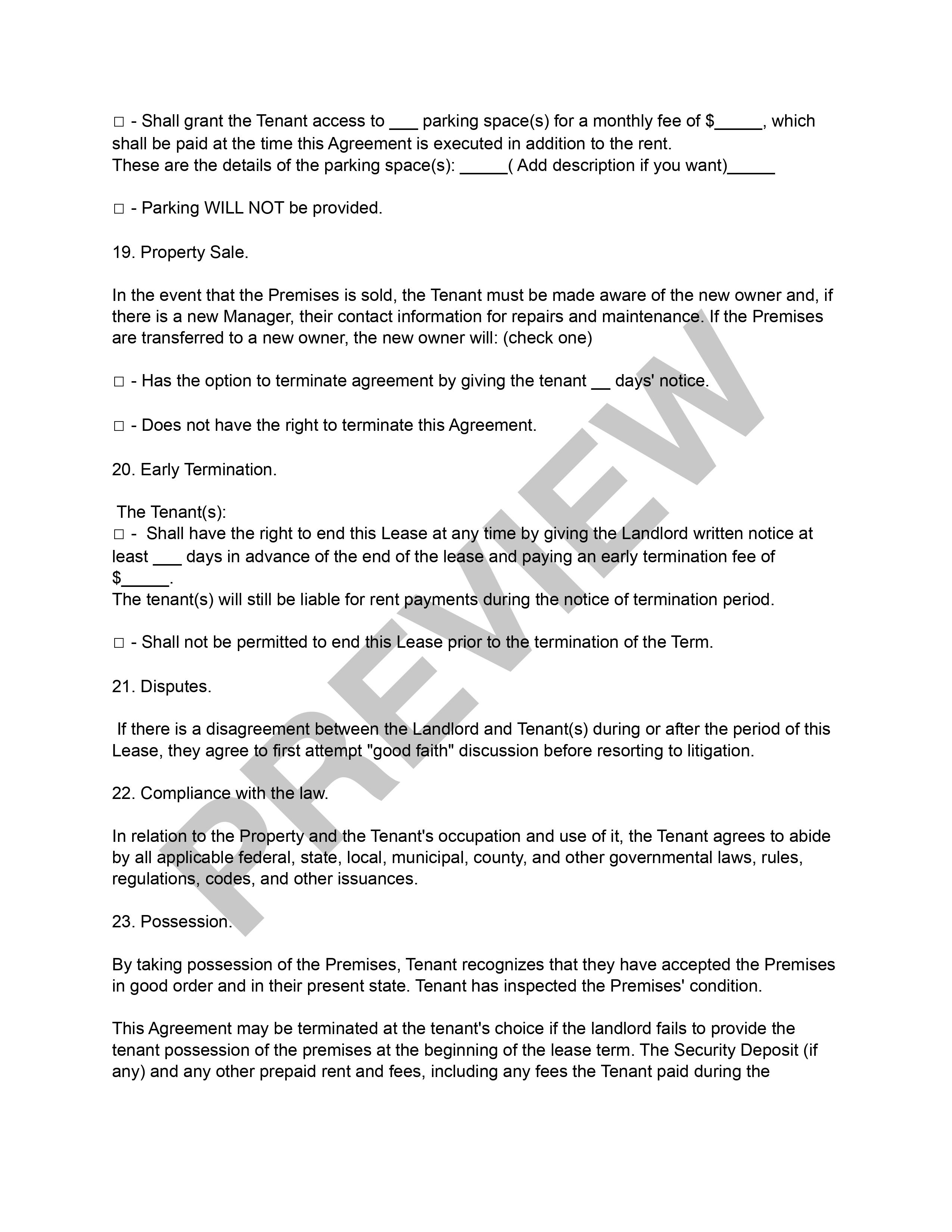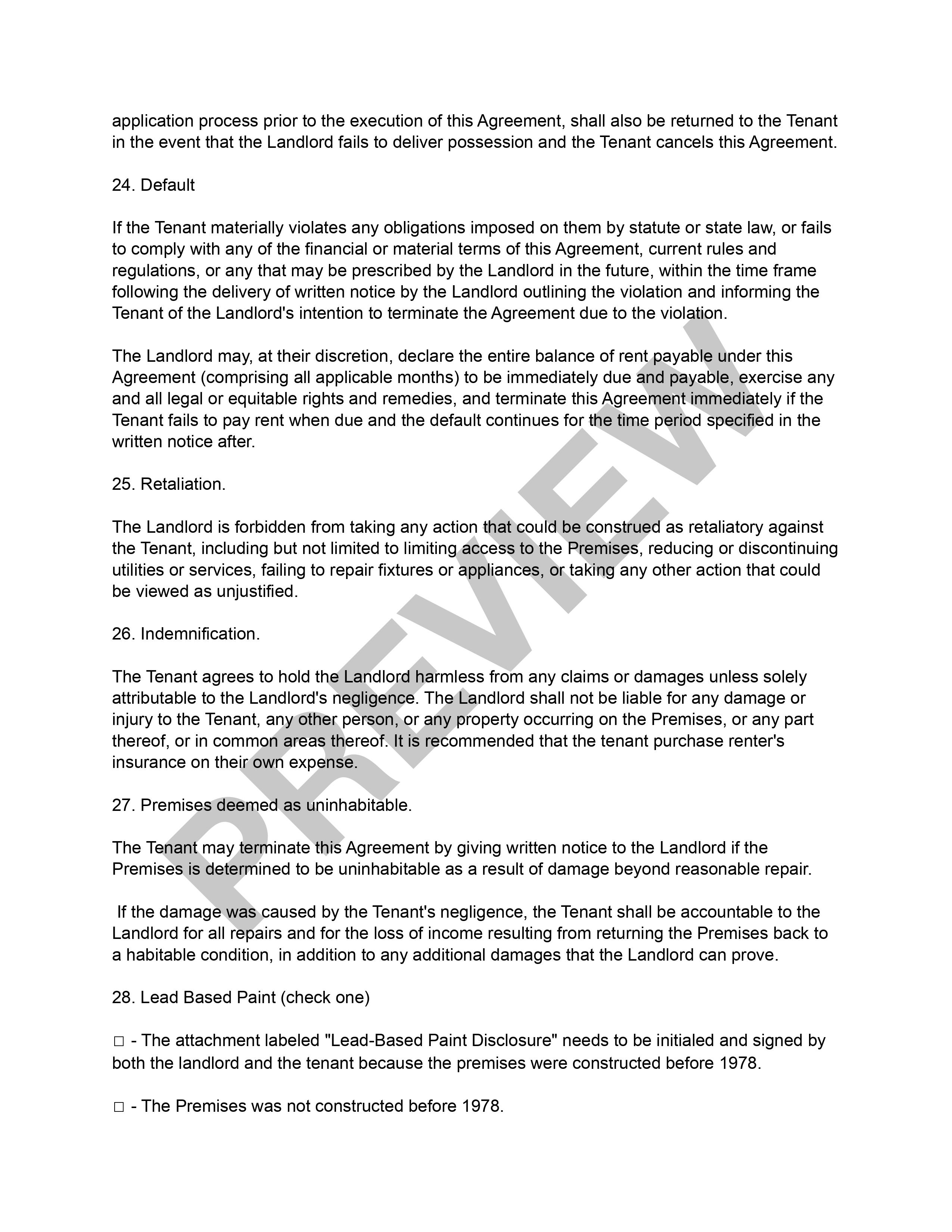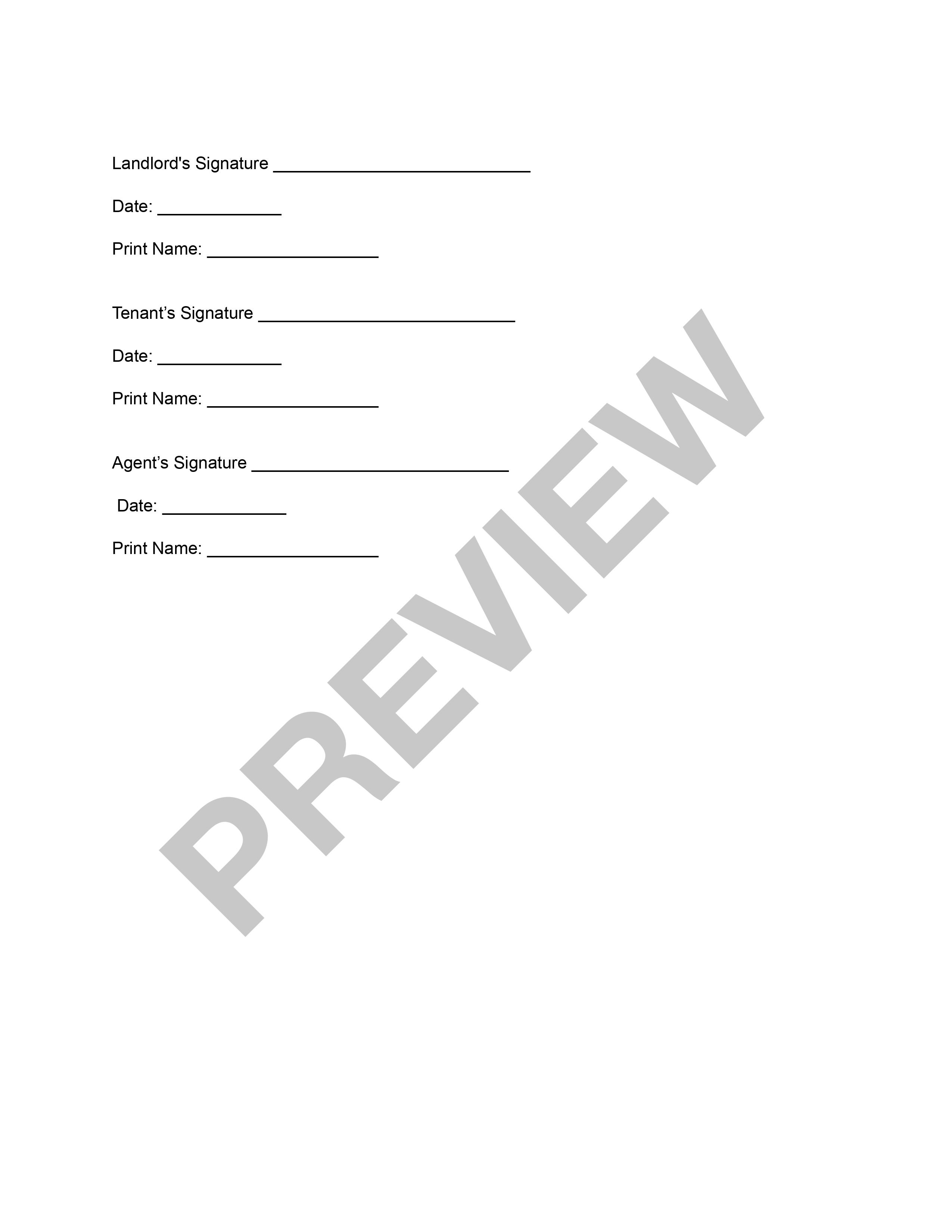Get Started
Different states have different regulations. Your Lease Agreement will be created for {{document_state}}.
Agreement Date
Property Details
Lease Term
Rent
First Month's rent *
Furnishings & Utilities *
Property Sale
Early termination
Paint
Frequently Asked Questions
A lease agreement is a legally binding contract between a landlord and a tenant that outlines the terms and conditions of a rental property. It sets out the rules and expectations for the use of the property, the length of the lease term, the amount of rent to be paid, and other important details such as the security deposit, late fees, and restrictions on pets, smoking, or alterations to the property.
Lease agreements are designed to protect both the landlord and the tenant by ensuring that each party knows their rights and responsibilities under the terms of the lease. They are typically signed by both parties before the tenant moves into the rental property, and they serve as a reference document throughout the tenancy. If either party violates the terms of the lease agreement, it can be used as evidence in legal proceedings or to justify eviction.
Agreement date on a lease agreement is the date on which the landlord and the tenant sign the lease document and agree to the terms and conditions of the lease. This is the date on which the lease becomes a legally binding contract between the two parties.
The landlord is the owner of a property that is being leased or rented out to a tenant. The landlord is responsible for maintaining the property in good condition and ensuring that it meets all legal and safety requirements. The landlord is also responsible for collecting rent from the tenant and enforcing the terms of the lease agreement, such as ensuring that the tenant complies with any rules and regulations related to the use of the property.
The tenant is the person or entity that is renting or leasing the property from the landlord. The tenant agrees to pay rent to the landlord in exchange for the right to use and occupy the property for a specified period of time, as outlined in the lease agreement. The tenant is responsible for complying with the terms of the lease, such as paying rent on time, keeping the property clean and well-maintained, and following any rules or restrictions related to the use of the property.
The lease initiation date is the date on which the lease agreement between the landlord and the tenant officially begins. This is usually the date on which the tenant takes possession of the rental property and begins paying rent. The lease initiation date may be different from the date on which the lease agreement was signed, as there may be a gap between the signing of the lease and the tenant moving into the property.
The lease termination date is the date on which the lease agreement between the landlord and the tenant officially ends. This is the date on which the tenant is required to vacate the rental property and return possession of it to the landlord.
A late payment fee is a charge that a landlord may impose on a tenant if the tenant fails to pay their rent on time. The purpose of a late payment fee is to encourage tenants to pay their rent on time and to compensate the landlord for any inconvenience or expenses associated with late payments.
A security deposit is a sum of money that a tenant is required to pay to the landlord at the start of a lease agreement. The purpose of a security deposit is to provide the landlord with a financial guarantee in case the tenant causes damage to the rental property, fails to pay rent, or violates any terms of the lease agreement.
First month's rent refers to the initial payment that a tenant is required to make to the landlord when starting a new lease agreement. This payment typically covers the rent for the first month of the lease term and is due on or before the lease initiation date.
Furnishings refer to the movable objects or accessories that are provided in a rental property to make it more functional and comfortable for the tenant. Furnishings can include items such as furniture, appliances, electronics, kitchenware, bedding, and linens.
Utilities refer to the essential services and facilities that are required for a rental property to function properly and be habitable. Utilities may include water, gas, electricity, heating, air conditioning, garbage collection, and sewage services.
Inspections refer to the process by which a landlord inspects the property to ensure that it is being properly maintained and that there are no damages or violations of the lease agreement. 48 hours is a resonable time to provide.
Early termination refers to ending a lease agreement before its scheduled expiration date. This can occur when a tenant needs to move out of the rental property before the lease term is up, or when the landlord decides to terminate the lease early due to a breach of the lease agreement by the tenant.
If a residential property was built before 1978, the landlord is required by law to disclose the presence of any known lead-based paint hazards to tenants, and to provide tenants with an informational pamphlet called 'Protect Your Family from Lead in Your Home'. This disclosure can be found and downloaded below and later too.


